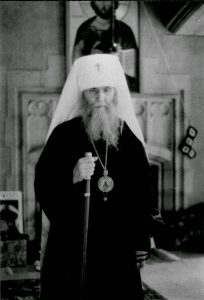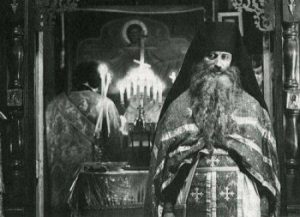Contemporary Fathers on the Pan Orthodox Council
The Pan Orthodox Council today is no different to the Council Of Florence in the 15th century. Those who were opposed to it then (and they were few, only one Bishop – St Mark of Ephesus) were right, and justified by later synods. Those who oppose the Pan Orthodox Synod today are right as well, and they shall too be justified.
Metropolitan Philaret of NY (reposed in 1985, found incorrupt in 1998)
 “The strength of Orthodoxy has always lain in Her maintaining the principles of Church Tradition. Despite this, there are those who are attempting to include in the agenda of a future Great Council not a discussion of the best ways to safeguard those principles, but, on the contrary, ways to bring about a radical revision of the entire way of life in the Church, beginning with the abolition of fasts, second marriages of the clergy, etc., so that Her way of life would be closer to that of the heretical communities.”
“The strength of Orthodoxy has always lain in Her maintaining the principles of Church Tradition. Despite this, there are those who are attempting to include in the agenda of a future Great Council not a discussion of the best ways to safeguard those principles, but, on the contrary, ways to bring about a radical revision of the entire way of life in the Church, beginning with the abolition of fasts, second marriages of the clergy, etc., so that Her way of life would be closer to that of the heretical communities.”
 “With such attitudes, is it any surprise that compromise reigns supreme in the relationship between the Orthodox promoters of ecumenism and the Roman Catholics, Protestants and Anti-Chalcedonians?…
“With such attitudes, is it any surprise that compromise reigns supreme in the relationship between the Orthodox promoters of ecumenism and the Roman Catholics, Protestants and Anti-Chalcedonians?…
Yet, behind these practical manifestations of the so-called ecumenical movement, other broader aims are discernible which lead to the utter abolition of the Orthodox Church.
 Both the World Council of Churches and the dialogues between various Christian confessions, and even with other religions (such as, for instance, Islam and Judaism) are links in a chain which in the manner of thinking of ecumenists must grow to include all of mankind…
Both the World Council of Churches and the dialogues between various Christian confessions, and even with other religions (such as, for instance, Islam and Judaism) are links in a chain which in the manner of thinking of ecumenists must grow to include all of mankind…
According to ecumenists, all this could be accomplished by a special Council, which in their eye would be truly “ecumenical” since they do not recognize the historical Ecumenical Councils as being truly so.”
Fr. Seraphim Rose on the Pan-Orthodox Council
 “Measured by the sober standard of unchanging, Patristic Orthodoxy, the preparations for an “eighth Ecumenical Council” (now termed Pan-Orthodox Council) are exposed as un-Orthodox, lacking in seriousness, and profoundly unpastoral and irresponsible. Such a Council is a project rooted not in Orthodox wisdom and in heartfelt concern for the salvation of souls, but rather in the “spirit of the times”; it is intended to please, not God, but the world, and in particular the heterodox world. **Judging from th
“Measured by the sober standard of unchanging, Patristic Orthodoxy, the preparations for an “eighth Ecumenical Council” (now termed Pan-Orthodox Council) are exposed as un-Orthodox, lacking in seriousness, and profoundly unpastoral and irresponsible. Such a Council is a project rooted not in Orthodox wisdom and in heartfelt concern for the salvation of souls, but rather in the “spirit of the times”; it is intended to please, not God, but the world, and in particular the heterodox world. **Judging from th e experience of the Vatican Council and its effect on Roman Catholicism, such a Council, if it is held, will produce profound disorders and anarchy in the Orthodox world**…the proposed “Ecumenical Council,” on the basis of the preparations that have hitherto been made for it, cannot be anything but another “robber council,’ a betrayal of Christ and His Church.” ~ (Fr. Seraphim Rose in 1976)
e experience of the Vatican Council and its effect on Roman Catholicism, such a Council, if it is held, will produce profound disorders and anarchy in the Orthodox world**…the proposed “Ecumenical Council,” on the basis of the preparations that have hitherto been made for it, cannot be anything but another “robber council,’ a betrayal of Christ and His Church.” ~ (Fr. Seraphim Rose in 1976)















